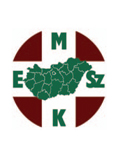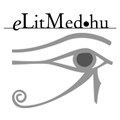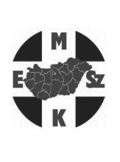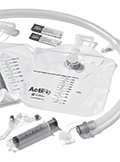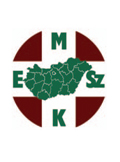The eLitMed.hu medical portal uses computer cookies for convenient operation. Detailed information can be found in the Cookie-policy.
Journal of Nursing Theory and Practice - 2014;27(02)
Content
[Research for Nurses 4. part: Interpretation of the results and deduction of the conclusions]
[The usefulness of the scientific work is classified through the results. The research is not a mechanical activity. The researchers can use the statistical methods versatile ways, but they are often faced, that their work is valuable or not? Data defining is a subjective process and the researcher must keep in mind: always to move within by the data indicated limits and their conclusions must be related to the research. The scientific research is not just characterizes by the result but also the moral value.]
[Job satisfaction and well-being among nurses]
[Aim of the study: To monitor the changes in job satisfaction and well-being of nurses and to investigate whether the uncertainty caused by the reorganisation of workplaces affected their well-being. Sample and methods: Two cross-sectional studies were conducted in six Hungarian teaching hospitals in 2003 and in 2010 involving full time worker female inpatient care nurses who were asked to complete a questionnaire developed by the researchers. Results: The degree of acknowledgement and psychological strain at the workplace decreased significantly since the first survey. The autonomy at work dropped which is reflected by the diminished decision making and fewer opportunities to plan the working methods, work tasks, pace of work and jobs. Nurses evaluate the working community as worse, but the judgement of the head nurses did not change in 7 years. The rate of positive well-being significantly decreased since 2003, although the extent of negative well-being did not change. Conclusions: The job satisfaction of nurses decreased and the uncertainty at workplace affects their well-being.]
[Occurrences involving aggression among healthcare workers ]
[Aim of the study: Evaluation of prevalence and manner of verbal and psychical aggression, as well as measuring its emotional impact on the healthcare workers. Sample and methods: A total of 453 healthcare workers were involved in a national cross-sectional study using self-administrative questionnaires. Data were analyzed by descriptive methods, Chi square and Wilcoxon test using SPSS 19. A p-value of <0, 05 was accepted as statistically significant. Results: 86,1% of the participating healthcare workers (n=453) have reported being subject of aggression (verbal and/or psychical) during their work. Of the participants’ sociodemographic parameters, age was found to be a significant factor in incidents involving aggression, which had a statistically significant negative emotional impact. It was also established, that those healthcare workers who have been subject to aggression received more support from their colleagues than from their institution after the incident. Conclusions: Occurrences involving aggression in healthcare is a common phenomenon. The authors’s results show that there is an urgent need to develop an aggression management programme for all healthcare workers since they can encounter aggressive patients on all fields of medicine. ]
[Awareness of Blood donation-related issues among paramedical professionals in Hungary]
[Aim of the research: To assess the blood donation-related knowledge of paramedical professionals working in the fields of nursing and care-giving, emergency care, surgical care and obstetric care in Hungary. Sample and method: The anonymous, self-completion questionnaire used in the survey was based on the „Eurobarometer 41.0 (1995): Europeans and Blood” survey, which the authors supplemented with their own questions. The authors conducted a web-based survey. The survey took place between 15 July and 15 September 2012, among paramedical professionals in four different professional groups, using a convenience sampling method. The authors analysed the collected data with IBM SPSS Statistics 20 software and the Kingsoft Office Spreadsheet (2012) program, using a descriptive statistical method and chi square test. Results: The survey took place with the participation of 312 paramedical professionals. Based on the results of the survey it was established that all the professional groups displayed gaps in their knowledge regarding blood donation. 86.19% of respondents have a correct understanding of blood donation. No significant differences can be observed between the levels of knowledge in the individual professional groups. Conclusions: The results display some significant and some non-significant correlations, as well as stochastic relationships relating to the distribution within the submanifolds. In the interest of eliminating the gaps in knowledge that were revealed in respect of the individual issues, the authors highlight the need for further training of paramedical professionals regarding blood donation.]
[Managing faecal incontinence with a rectal catheter]
[All patients have the right to the appropriate treatment and level of comfort during their stay in hospital. One of the basic requirements of quality nursing is the assurance of bodily hygiene and humane treatment. In our paper we would describe rectal catheterisation, which is now a widely used procedure in the care of patients with faecal incontinence in Slovakia. Moreover, we cite specific data on the economic benefits of using a rectal catheter.]
1.
Clinical Neuroscience
[Headache registry in Szeged: Experiences regarding to migraine patients]2.
Clinical Neuroscience
[The new target population of stroke awareness campaign: Kindergarten students ]3.
Clinical Neuroscience
Is there any difference in mortality rates of atrial fibrillation detected before or after ischemic stroke?4.
Clinical Neuroscience
Factors influencing the level of stigma in Parkinson’s disease in western Turkey5.
Clinical Neuroscience
[The effects of demographic and clinical factors on the severity of poststroke aphasia]1.
2.
Clinical Oncology
[Pancreatic cancer: ESMO Clinical Practice Guideline for diagnosis, treatment and follow-up]3.
Clinical Oncology
[Pharmacovigilance landscape – Lessons from the past and opportunities for future]4.
5.




